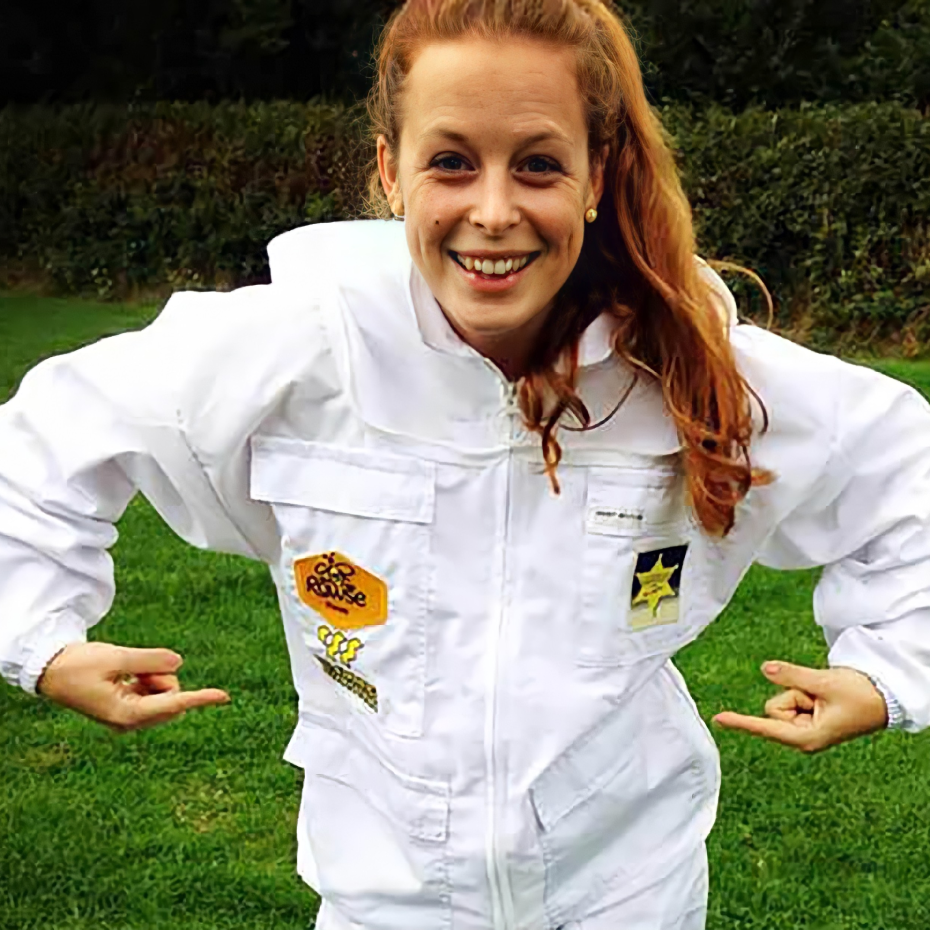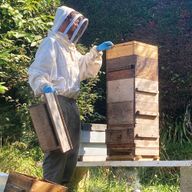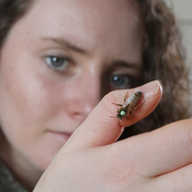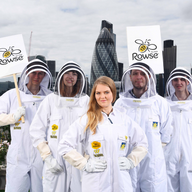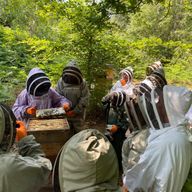
A sustainable future for honey bees is, in part, reliant on the wonderful, skilled people who nurture them – beekeepers. But did you know that the average commercial beekeeper is over 60 years of age? To make sure we protect this vital role and support the future of honey bees, we wanted to inspire & train the next generation.
This is why we launched a unique, three-year apprenticeship scheme in partnership with the Bee Farmers Association in 2014, to equip young people with the skills & knowledge needed to become beekeepers.
So, what is it?
It’s a scheme supported by the Department for Environment, Food and Rural Affairs (Defra) and developed with the help of the Livery Companies Skills Council and City & Guilds. It’s open to all and aims to equip young people with the skills and knowledge to make a successful career in the beekeeping industry.
We’ve put together the answers to a few frequently asked questions for you below:
How do I know I’m eligible to apply?
Beekeeping provides a lifestyle like no other. You’ll be working in the great outdoors with unpredictable hours according to the needs of the hives, so enthusiastic, self-starters are welcome! No qualifications are required, but applicants should be passionate about nature, have a curiosity about the natural world and a keen business mind. Get ready for a solid, life-long career in commercial beekeeping.
What will I study?
Apprentices are employed on a bee farm in the UK. You’ll be working with your employer (also called the host trainer) for the majority of the year, gaining practical experience as you earn. There may be opportunities to work on different bee farms throughout the country and visit different businesses in order to gain breadth and variety of experience.
Underpinning knowledge will be delivered by expert industry trainers in two blocks per year, each of two weeks. You will study:
- introduction to beekeeping
- equipment
- carpentry and basic woodworking skills
- seasonal management
- queen rearing and stock improvement
- botany and forage sources
- pollen and nutrition
- honey bee anatomy
- honey bee diseases
- integrated pest management
- microscopy
- processing hive products
- bottling and presentation
- setting up a business
- business structures
- finance
- marketing
- the competitive environment
- the industry worldwide
- health and safety
- first aid
- food hygiene
These residential study blocks, along with training and visit days and online forums, provide the opportunity to meet and communicate with other apprentices and build friendships and contacts for the future.
How will it be assessed?
Each apprentice is allocated an assessor. Apprentices are required to record their activities in a weekly log which is signed off by their host trainer and reviewed by the assessor to confirm work meets the standards required. The log is maintained on a specially-designed e-learning platform; training is given at the start of the course on how to use the system. The team delivering and managing the programme meets regularly to ensure assessment is standardised and high-quality delivery is maintained.
What support do I get?
In addition to specialist support provided by the host trainer and expert industry trainers, each apprentice is assigned a mentor who provides support on pastoral issues. This ensures any possible difficulties that may arise are dealt with efficiently and effectively.
Is this a paid or unpaid scheme?
Apprentices are paid directly by their employer (host trainer). The training element of the scheme is financed by us. Defra supports the scheme by contributing to the costs of the assessors. Other sponsors provide practical benefits - for example, BJ Sherriff provides bee suits. Apprentices who fit the age criteria are provided with a rail travel card free of charge for the duration of their programme.
What career options does the bee farming apprenticeship scheme open up?
There is a diverse range of career options open to apprentices following the training scheme. Current apprentices are specialising in honey production for use in the food industry and wax production for use in the cosmetic industry. Throughout the scheme, there may be opportunities for apprentices to work on different bee farms throughout the country and visit different businesses in order to gain breadth and variety of experience, and make contacts throughout the industry.
How do I apply?
Applicants interested in taking up commercial beekeeping full time can send their CV, along with contact details and a covering letter via this link. Use the covering letter as your chance to capture our attention; we want to hear what relevant skills and experience you would bring to the role and why you think you would be suited to a career in beekeeping.
